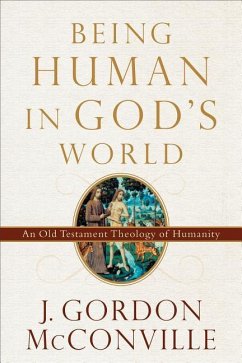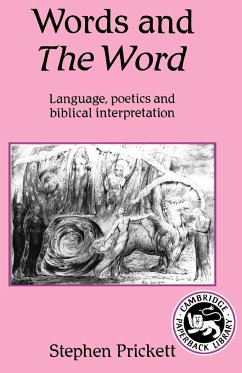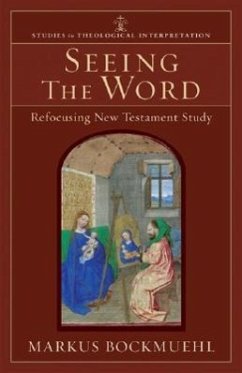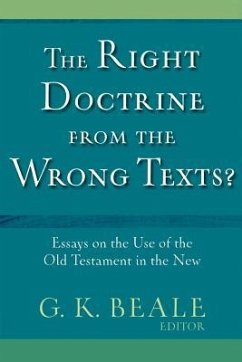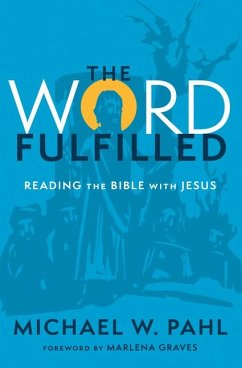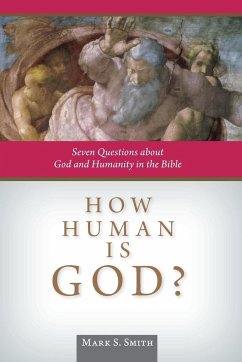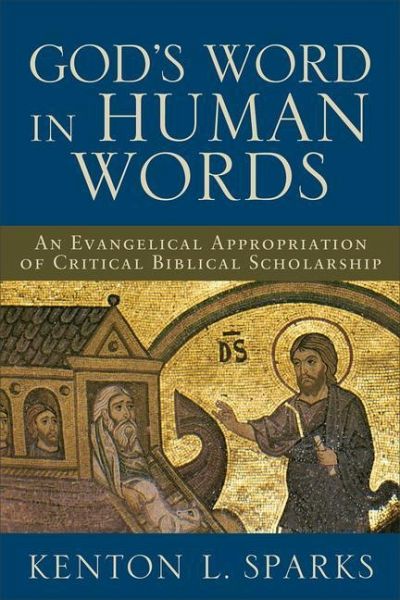
God's Word in Human Words
An Evangelical Appropriation of Critical Biblical Scholarship

PAYBACK Punkte
15 °P sammeln!
"Finally, a fresh, creative, carefully nuanced approach to biblical criticism from an evangelical! Sparks skillfully makes his case for a 'believing criticism' by carefully assessing the current available alternatives. His thorough, methodical work stakes out for many thoughtful evangelicals a credible, theologically based, devout place to stand in integrating critical work and faith. I highly recommend it."--Robert L. Hubbard Jr., North Park Theological Seminary "This important volume provides a bridge between critical scholarship and traditional views on Scripture. In the process of surveyin...
"Finally, a fresh, creative, carefully nuanced approach to biblical criticism from an evangelical! Sparks skillfully makes his case for a 'believing criticism' by carefully assessing the current available alternatives. His thorough, methodical work stakes out for many thoughtful evangelicals a credible, theologically based, devout place to stand in integrating critical work and faith. I highly recommend it."--Robert L. Hubbard Jr., North Park Theological Seminary "This important volume provides a bridge between critical scholarship and traditional views on Scripture. In the process of surveying the flash points created by modern critical scholarship, Sparks champions 'practical realism' as an approach that provides a more productive middle ground. Both evangelicals and nonevangelicals will benefit from this very frank discussion of the history and possible future for biblical scholarship."-- Victor H. Matthews, Missouri State University "Sparks issues an irenic invitation to reconcile academic consensus with evangelical conviction in ways that respect and inform both. His plea for his fellow evangelicals to take historical criticism much more seriously features impressive and honest arguments for mainstream critical stances toward Old and New Testament texts, informative tours of fields from hermeneutics to Assyriology to patristic and Reformation theology, and a bold proposal to affirm biblical inerrancy in terms of perfect divine accommodation to human error. May it encourage and shape the fruitful conversation we evangelicals absolutely need to have."--Telford Work, Westmont College "Sparks asks hard questions. In this volume he provides answers that he believes satisfy intellectually as well as spiritually. His erudition is evident on every page. Of course, not all will agree with his version of 'practical realism' and how it relates to biblical hermeneutics, but few can deny that he has advanced the conversation in a way that is helpful and healthy."--Bill T. Arnold, Asbury Theological Seminary "Sparks emphatically affirms both the methodology and results of historical and modern biblical criticism and the authority of Scripture. He distinguishes divine inerrancy from the finite and fallible human vessels through whom God chose to reveal God's Word. This is a valuable window into the 'progressive evangelical' approach to the nature of Scripture."-- Elaine A. Phillips, Gordon College




